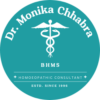Homeopathy in India is a widely accepted form of alternative therapy. To our surprise, it prevails more among the enlightened group of our society, yet it harbors ample amounts of myths. There are very few qualified and learned homeopathic physicians.
People often self-medicate, thinking there are no side effects of homeopathic medicine. At times, they tend to take the same medicine for years together, which probably helped them to relieve an ailment at some point in time.
People in dire need never turn up at a homeopathic physician’s clinic, thinking, Let’s make it alright first to some extent and then try this alternative therapy, as homeopathic medicines are perceived as slow-acting remedies.
People also try to visit an old homeopathic doctor, as they are assumed to have more experience with this form of medicine, without realizing whether the physician is qualified to practice homeopathy.
Sometimes suggestions are sought from relatives or friends who have suffered from similar ailments in the past and thus start taking the same medication without realizing the damage their body is going through in the process.
These are the few misconceptions that need to be clarified. First and foremost, self-medication in homeopathy due to any reason or knowledge should be completely prohibited, as it can lead to a change in the form of symptoms, thus hiding the true picture of the ailment, and in cases where the advice of the physician is required, it will take longer to treat such a case.
A major side effect of homeopathic medicines is that they can lead to aggravation of the symptoms if given without knowledge of the true prognosis of the disease. It might lead to more suffering rather than relief.

This also clearly suggests that advice readily available on the internet or advice taken from some relative or quack practicing homeopathy might push you towards more pain and suffering. When a body needs relief, we rush to an allopathic doctor, but why not a homeopathic physician?
This is because of the misconception that it works slowly. Let me clear up this notion, dear friends. It is not the case; homeopathy never fails; it is the homeopathic doctor who fails, and in return, tells you it takes longer when the case is not diagnosed and treated properly.
This form of medicine is not easy to practice, so people who claim to be learned physicians also fail at times. Medicines are medicines and should be taken only when actually required. Until and unless you go to a qualified person, you will not know if the ailment actually requires medication or if it is self-limiting.
Never take advice from a non-qualified person, as it is not only you who would suffer, but homeopathy would also be classified as a non-sought form of medicine, and society in general would not get the benefits of this wonderful form of treatment.
Homeopathy is a vast science, and practicing homeopathy is an art. This is known and understood by all who believe in this form of healing. People in general, when visiting a homeopathic physician, have a few mental blocks that provoke them to expect a certain kind of attention from a homeopathic physician.

For long, homeopathic physicians, especially those who are practically non-qualified, have had a certain way of treating their patients. Homeopathy has certain rules that, as a homeopathic consultant, one has to follow.
People approach a consultant with purely one notion in mind: that they will be treated on the basis of symptoms. Yes, homeopathy is a science based on symptoms, but what separates one individual from another has to be thoroughly considered, and this is an art.
There could be two individuals with similar disease forms who may require different homeopathic medicines according to their individual symptoms. These individual symptoms are the ones that help a physician extract a remedy from the immense stock of homeopathic remedies.
When a patient arrives in the clinic with some ailment, he has some symptoms that indicate which ailment he is suffering from. Accordingly, the physician prescribes the medicine, but as is known to all who have sought this form of treatment, it fails to give results at times. We all have to understand the possible reasons behind this failure.
Though it is a long narrative, which we will continue in the coming times, as of now, I would like to emphasize the failure of segregating the symptoms of the disease from the individual symptoms. This is normally observed in the treatments given by the quacks, which cannot be differentiated.
I also saw the physicians give the treatment without diagnosing the disease. If diagnosis were not done properly, one would not know what the symptoms are pertaining to the disease, and that’s what individualizes a patient.
Though in today’s times, one sees diagnostic procedures being done purely from a commercial point of view, it still does not bring down the importance of them in times of need.
In homeopathy, the symptoms of a disease are important, but what is more important is the thorough knowledge of the disease for the consultant, as he needs to know what the presentation of the disease is and what symptoms would make him individualize one patient from the other, thus coming to a conclusion about a remedy, e.g. When a patient is suffering from malaria, perspiration is normal, but to come to a conclusion, the physician has to advise a blood test, and then after the diagnosis, they should know what stages the patient would go through.

If diagnosis is not done and treatment is given on the basis of symptoms, it would have no result as the disease symptoms might be confused with individual symptoms. At last, I have to say only one thing: the importance of a diagnosis done by a qualified physician has far greater chances of a cure than if treated by a quack.
After so many years of practice, I still witness miraculous recoveries with homeopathic medicines. Our medical councils and our respected colleagues from other systems of medicine still struggle to recognize homeopathy.
Some hard-core practitioners, to date, don’t wish to admit that homeopathic medicines can cure the agony caused by many diseases. It is a dilemma in the minds of many, whether it is the medicine or the desire to be cured that results in recovery.
The debate is endless because it is a system that proves itself through the results for patients. Good, qualified homeopathic physicians encounter numerous cases that could have been cured in the initial stages with homeopathic intervention but have been distorted because of other forms of therapy.
There is a lot to be told, as many patients come and share their experiences, and they are made aware that with homeopathic medicine the cure was possible, and that too without much pain and anguish.
Hearing this, they feel incapacitated. Our system in society should be such that patients are made aware of all the possible treatments for their agonies and sufferings. It is very unfair on the part of medical professionals if they are luring patients for their personal financial gains. Hospitals are opened and run only for monetary benefits instead of facilitating patients, and on top of that, only countable medical centers provide alternate therapy a chance in their centers.
Very few in this medical fraternity are working solely for the benefits of the sufferers in society. If we all work together, on ground level, to create awareness in patients about the different modes of treatment available to them, we might earn less financially, but we would be rich in terms of blessings. In addition, what is needed is all the medical therapies working together, and then patients would be most benefitted.
This may seem like a far-fetched dream, but it is definitely possible if desired and worked upon. The idea of working together may still not be plausible for many medical professionals, but at least they should be appreciative of the treatment rendered to patients by homeopathic consultants.
There are numerous techniques available to determine if the patient is benefiting, and it is up to the patient at the end of the day to say how much he is relieved. Seemingly, impossible cases can be given a chance of survival with the intervention of homeopathic remedies; also, the cases that can be dealt with with homeopathy should not be garbled with other therapies.

Much awareness is desired for homeopathy in society so that the final beneficiary is the patient. Once again, I geared up to bust a few myths that are still engulfing the art of practicing homeopathy.
People who are regular readers of my articles would agree with me that I’ve taken up quite a few of them, and as told by many, it did help to know a few facts, but there are many issues that still need to be addressed. One of such issues is how to assess whether a particular homeopathic doctor is good enough for you.
Being in this profession for so long and having been in touch with a lot of colleagues, I concluded a few facts. Here, I will not only discuss the treatment given by a doctor but also all the factors you should consider when choosing a doctor. The most important of all the criteria is that the doctor should be located in your vicinity.
Now you must think about why it is important in the first place. According to many, the homeopathic doctor is the one not sought after in emergencies, so for chronic ailments, your visit can be pre-planned. I thoroughly disagree with both points.
First, the homeopathic physician is a physician and can be your family doctor for all practical purposes, and you sought the first opinion of your family physician only for all ailments. Second, if your doctor is not in your vicinity, it would require an effort to plan the visit, which can get cancelled for an ample number of reasons.
If your ailment is such that it requires medication without a break in your dosage, these few cancellations can prove grievous. One such example is medication for diabetes mellitus, which one cannot afford to miss at all.
We all know we cannot control circumstances, so to think that missing medicine is a rarity is a myth itself. Moreover, even if we do not talk about grave diseases, maintaining regularity to achieve a good result from the treatment is mandatory.
Another important aspect to look for is the qualification of the concerned doctor. I have taken up this issue before and would like to emphasize it once again. To judge that a homeopathic physician is good is not only gray hair. Being experienced is good, but being qualified is best, and of course, you would be lucky if you got both.
There could be a number of reasons to select a doctor for yourself, but the one that cannot be ignored is that the doctor is a patient listener. However, of course, we all seek attention when we visit a physician, but there are many practitioners who know what the patient is suffering from and start the treatment without caring to share the knowledge with the concerned.
Making someone aware of their ailment is a basic requisite, as it will be the patient who ultimately manages himself, and being aware helps to do so. A physician should have the patience to listen to soothe the nerves of the sufferer and should share the treatment plan to build up positive confidence, which would eventually help in the recovery. Last but not least, you should feel pleasant in the presence of the doctor.
This helps in generating a positive vibe between two people, and of course, it benefits the patient, which is the main goal. Once again, it calls for a discussion about how much self-medication is recommended and doesn’t prove harmful in homeopathy. As understood by many homeopathic medicines, they are harmless, but it is a notion I have busted time and again through my articles.
I still encounter this almost every day: people coming and asking me if I have a particular medicine with me. Many times, homeopathic consultants are secretive about what medications are being administered to patients. Commenting on what they might have in their minds would be beside the point, but to be true, they are knowingly or unknowingly doing good to their patients.

In our country, medicines are readily available over the counter, even without the prescription of a doctor. Patients go to the pharmacy and, without any hitch or hesitation, ask for the medication or, more surprisingly, ask the pharmacist which medicine they should take for a particular ailment. They do not realize how much harm they can encounter with such atrocious acts.
This careless attitude regarding allopathic medicines, of which all of us are well aware, can pose serious unwanted consequences with tremendous side effects. Now, how can we expect people to be guarded about homeopathic medicines for which they have the belief that they don’t have a side effect?
A very common example is when parents come and ask me for CALCAREA PHOS for teething troubles or as a calcium supplement. Parents are so naïve about the effects, or simply the fact that their precious baby doesn’t require this medication at all.
I have quoted in the past and will quote again: medicine is medicine and should be given only when it is actually required and recommended by a qualified homeopathic physician.
Suppose a child is facing teething troubles, e.g., headache, vomiting, loose motion, etc.. In that case, it has to be treated in a different light and also with an understanding that the child is having irritation in the teeth, which is normal during the teething process, and is tempted to put everything in the mouth to seek relief, which is most of the time dirty because of which they land with various infections, and not always calc phos is recommended.
Also, it is not a supplement for calcium; it is a homeopathic medicine. This kind of information may be useful to many parents, but this is just one example of one medicine that is very frequent and over-the-counter for many patients.
There are thousands of homeopathic medicines with thousands of misconceptions that I encounter almost every day. It is practically impossible to take up all of them here, but as a rule, everyone should voluntarily prohibit the habit of self-medication, even with homeopathic medicines.
Homoeopathic medicines can do wonders if taken with faith and treated with sincerity.
DR. MONIKA CHHABRA B.H.M.S. (DLI) PH: 9820345479 SHOP NO. 10, G.F., B-BLOCK MARKET, SOUTH CITY, II GURGAON E-mail: drm.vasudev@gmail.com



Medixi
January 4, 2023Monotonectally administrate user-centric results whereas performance based manufactured products. Continually restore premier strategic theme areas through magnetic customer service. Holisticly embrace optimal processes without
Medixi
January 4, 2023Progressively procrastinate mission-critical action items before team building ROI. Interactively provide access to cross functional quality vectors for client-centric catalysts for change.